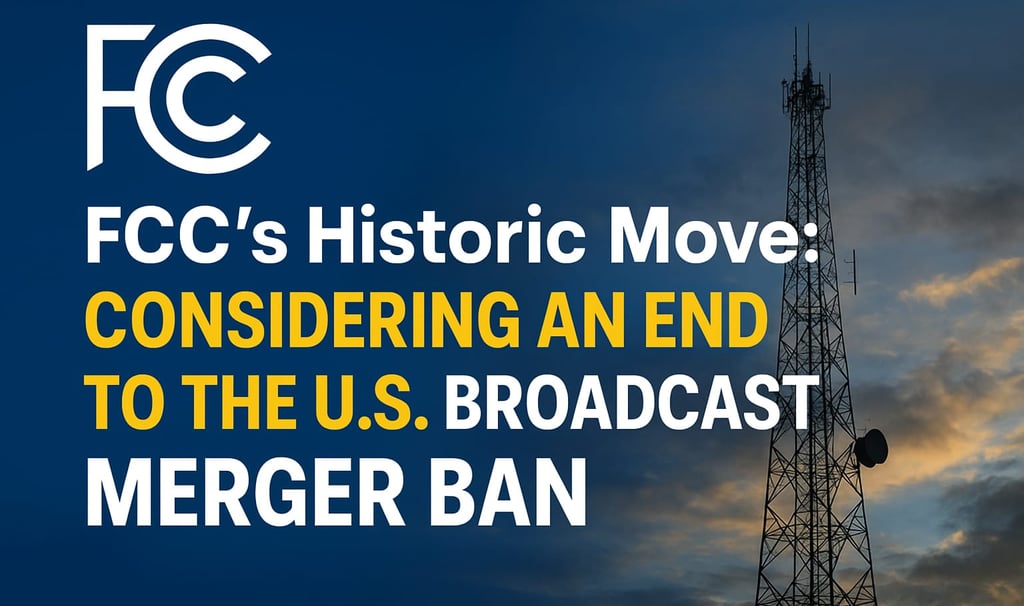FCC Considers Ending U.S. Broadcast Merger Ban | Latest Media Industry Update 2025
FCC may end the decades-old ban on NBC, ABC, CBS, and Fox mergers. A historic decision could reshape the U.S. media industry in 2025.
Raja Awais Ali
9/30/20252 min read


FCC’s Historic Move: Considering an End to the U.S. Broadcast Merger Ban
On September 30, 2025, the U.S. Federal Communications Commission (FCC) announced that it is considering ending the decades-old ban on mergers among the four major broadcast networks — NBC, ABC, CBS, and Fox. This potential decision could mark a turning point for the American media industry, reshaping broadcasting rules and ownership structures.
The FCC has confirmed that it will open a public consultation process to gather opinions on whether lifting the ban serves the public interest. In addition, the commission stated that it will review other long-standing media ownership rules, including restrictions that prevent one company from owning more than two major TV stations in the same local market, and limitations on radio station ownership.
If approved, this move could have far-reaching consequences. Analysts believe it would create new opportunities for major broadcast networks while also raising serious concerns about media concentration and independence.
On one hand, mergers would allow networks to pool resources, enhance technological investments, and improve programming quality. It could also enable more robust investments in digital platforms, helping traditional broadcasters compete with streaming giants. Regional or weaker stations may also benefit by gaining access to larger capital pools through partnerships.
On the other hand, critics warn that such consolidation may increase the risk of media monopolies. Independent and local news outlets could struggle to survive, which may reduce diversity and transparency in news reporting. Concerns are rising that post-merger, media content could become heavily influenced by a handful of corporate interests, undermining public trust and democratic representation.
The FCC emphasized that the final decision will only be made after carefully weighing public feedback. The key question is whether maintaining the merger ban still serves its original purpose in today’s digital-first era, or if it has become an obstacle to innovation and competitiveness in the U.S. media landscape.
Historically, the FCC enforced strict ownership rules to prevent excessive control of media by a single company. However, in today’s fast-changing environment — where streaming services and online platforms are challenging traditional broadcasters — regulators are reconsidering whether these restrictions are still effective.
Global attention is now focused on the FCC’s next steps. Will this move create a freer, more competitive, and modern media industry in the U.S., or will it pave the way for monopolies and concentrated power? One thing is certain: this debate marks one of the most significant turning points in the history of American broadcasting.
Stay informed with the latest national and international news.
© 2025. All rights reserved.